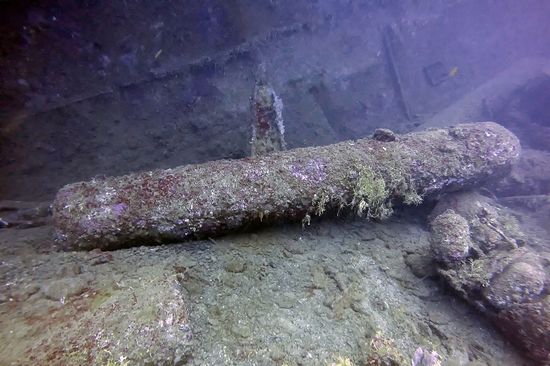Munitect – international leadership via network

Even decades after the end of the war, old munitions in the North Sea and Baltic Sea pose an incalculable risk in terms of economic use. Detecting, recovering or defusing the warfare agents has so far been difficult and very costly. The Munitect network, funded by the Federal Ministry of Economics and Technology (BMWi), has set itself the goal of improving this situation – an association of companies and research institutions that aim to advance the development and deployment of cost-effective sensor systems for munitions detection and bring them to market.
The event “Munitions – Contaminated Sites in the Sea” offered by the MCN Maritime Business Offshore Wind group during the WindEnergy trade fair in Hamburg met with such great interest that MCN subsequently sponsored a further project group meeting. It was here that the notion of establishing a network arose with the aim of developing a cost-effective technology for the detection, qualification and clearance of munitions. The consortium was established in mid-2015, and the official go-ahead for the Munitect project was given in February 2016.
“The network partners share the vision of a capable and cost-effective sensor platform that permits an efficient, secure and safe detection of munitions in the North Sea and Baltic Sea. In the long term, the network should develop into a contact point in Germany that represents the interests of the actors in the relevant economic areas,” explained Dr. Kristine Bauer of the Fraunhofer IGD in Rostock. As a management institution, the institute coordinates the activities of its members, the integration of new network partners and the further development of the network.
Companies, universities and authorities from all five federal states of the MCN are involved. New partners are always welcome, as the network manager emphasised: “All those involved in the installation of offshore infrastructures or in coastal protection are equally affected by contaminated sites in the North and Baltic Seas. The network offers its members the chance to coordinate innovations, integrate them into an overall product and thus establish themselves on the international market as leading contact partners for that sector.”
The network received valuable advice and support from MCN in terms of funding opportunities, marketing activities and public relations work. Thanks to the extensive networking, a large circle of interested parties could quickly be found among the members of the cluster in the participating five federal states. BMWi funding that was requested for the start-up phase has already been approved. “The number of participants at the founding event shows the importance of MCN for the regional economy. The cluster is an established venue for setting ideas and activities on a large foundation – it helps with the evaluation of current events and the search for contacts and partners,” summarised Dr. Kristine Bauer.